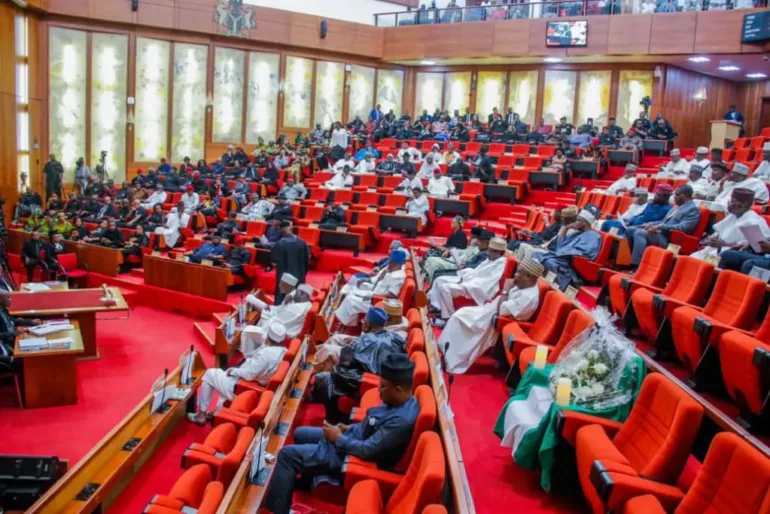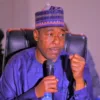In a move aimed at strengthening Nigeria’s electoral process, the Senate has passed the Electoral Act Amendment Bill, 2025, at its second reading, proposing a significant shift that would place the burden of proof on the Independent National Electoral Commission (INEC) in election petition cases.
Senate President Godswill Akpabio announced the bill’s passage during Wednesday’s plenary, noting that the majority of senators supported it through a voice vote.
Following the second reading, the bill was referred to the Senate Committee on Electoral Matters for further scrutiny and a public hearing. The committee has been directed to report back within two weeks.
Sponsored by Senator Simon Lalong (APC, Plateau South), Chairman of the Senate Committee on Electoral Matters, the bill aims to strengthen the legal framework governing elections in Nigeria.
The legislation was initially presented for second reading last Thursday but was stepped down to allow for broader consultations. It resurfaced during Wednesday’s session, where lawmakers engaged in extensive debate on its general principles.
While presenting the bill, Lalong acknowledged that the 2022 Electoral Act introduced important reforms but also exposed some weaknesses. These include delays in the release of election funds, disputes over voter registers, conflicting interpretations regarding result transmission, and weak enforcement of electoral offences.
The proposed amendment seeks to enhance the independence of INEC by shielding it from political interference and government control.
During the debate, lawmakers argued that the current legal framework, which places the burden of proof on election petitioners, is unfair and undermines electoral justice. They contended that since INEC conducts the elections, it should bear the responsibility of proving that elections were free, fair, and credible.
Senators also expressed concern over increasing threats from political actors against democratic institutions, calling for increased support and funding for INEC. This would enable the commission to deploy more advanced technology in future elections.
Akpabio commended the progress made in Nigeria’s electoral system, stating, “Elections have improved in the country since the Peoples Democratic Party (PDP) left power. We have seen improvements, but we are not yet there.”
He urged continued reforms to further enhance transparency and public confidence in the electoral process.


